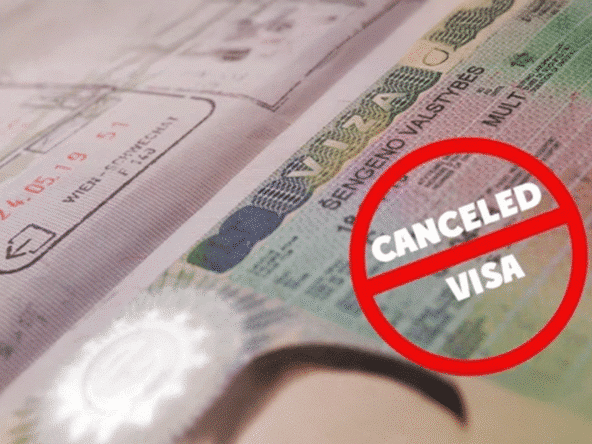The United Arab Emirates (UAE) has long been recognized as a global hub for business, investment, and innovation. Its favorable tax regime has attracted corporations, entrepreneurs, and multinational companies from around the world. However, with global tax standards evolving and the need for fiscal sustainability growing, the UAE has introduced new tax rules for 2025 that mark a significant shift in its economic landscape. These updates primarily concern corporate tax UAE regulations and signal the country’s commitment to transparency, international cooperation, and long-term economic growth.
This article will explore the details of the UAE’s corporate tax updates, what they mean for businesses, and how organizations can prepare for the new fiscal environment.
Understanding the New Corporate Tax UAE Framework
- In January 2022, the UAE announced the introduction of a federal corporate tax for the first time in its history, with implementation scheduled for June 2023. However, with the evolving nature of international tax laws and ongoing reforms under the OECD’s BEPS (Base Erosion and Profit Shifting) initiatives, the UAE government has introduced further tax rule changes in 2025 to enhance compliance, competitiveness, and economic resilience.
- Under the updated corporate tax UAE system in 2025, several critical elements have been revised to align with global standards while still maintaining the UAE’s attractiveness as a business destination.
Key Highlights of the 2025 Corporate Tax UAE Rules
1. Tax Rates and Thresholds
The updated corporate tax UAE policy retains the standard rate of 9% on taxable income exceeding AED 375,000. This rate is among the most competitive in the world and is aimed at maintaining the UAE’s business-friendly reputation while meeting international tax compliance expectations.
For small businesses and startups, the Small Business Relief Scheme continues to apply. Companies with revenue below a certain threshold (to be updated annually) may qualify for exemptions or reduced compliance requirements.
2. Transfer Pricing Compliance
One of the most significant changes in the 2025 update is the enhanced transfer pricing regulations. Businesses must now submit detailed transfer pricing documentation, including a master file, local file, and Country-by-Country Reporting (CbCR) where applicable. This step brings the corporate tax UAE framework in line with OECD guidelines and ensures transparency in intercompany transactions.
3. Free Zone Entities: Clarification and Reforms
While businesses operating in UAE Free Zones can still benefit from zero percent tax rates on qualifying income, the 2025 tax reforms provide clearer definitions of what qualifies as “qualifying income”. Only specific types of revenue—such as income from trading with foreign jurisdictions or other Free Zone entities—are eligible for exemptions.
Any non-qualifying income will be subject to the standard corporate tax UAE rate, emphasizing the need for careful tax structuring and compliance reviews by Free Zone businesses. Developments like DAMAC CANAL HEIGHTS 2, strategically located near key Free Zones, continue to attract entrepreneurs and investors looking to align luxury living with smart business positioning.
4. Deductibility of Expenses and Losses
The 2025 tax rules provide updated guidelines on the deductibility of business expenses. While most operational expenses remain deductible, businesses must now maintain stricter documentation to justify the legitimacy of deductions. Additionally, rules on carry-forward of tax losses have been refined, allowing businesses to offset future taxable income, subject to specific conditions.
Why These Changes Matter
The introduction and continual refinement of corporate tax UAE policies represent a transformative step for the UAE economy. Here’s why these changes are significant:
- Global Alignment: As the OECD’s global minimum tax rules continue to shape tax regimes worldwide, the UAE’s compliance ensures its reputation as a cooperative and transparent jurisdiction.
- Revenue Diversification: These tax reforms support the UAE’s strategic vision to diversify its revenue base, reducing reliance on oil and other traditional sectors.
- Investor Confidence: A well-defined tax framework enhances investor confidence by providing legal certainty and a level playing field for domestic and international companies.
Impact on Multinational Companies and SMEs
For Multinational Enterprises (MNEs)
MNEs operating in the UAE must now assess the implications of transfer pricing, substance requirements, and corporate tax UAE reporting obligations. These companies must ensure that their intercompany transactions are priced at arm’s length and are supported by robust documentation.
Additionally, the introduction of stricter compliance standards means that MNEs must invest in internal tax functions, digital tools or engage with external advisors to remain compliant. Business-friendly communities like DAMAC Hills 2 are increasingly attracting international investors by offering a supportive environment aligned with these new compliance expectations.
For Small and Medium Enterprises (SMEs)
While SMEs may still benefit from exemptions and small business relief, the new rules place a stronger emphasis on proper bookkeeping, financial reporting, and tax return filing. SMEs must understand their obligations and avoid non-compliance, which may lead to penalties or audits.
Digital Tax Administration: A New Era of Compliance
Another notable update in the corporate tax UAE 2025 framework is the digitalization of tax administration. Businesses are now required to:
- Register and file tax returns through the UAE’s digital tax portal.
- Submit real-time transaction data for certain industries.
- Integrate electronic invoicing systems that support tax traceability.
Communities such as DAMAC Hills are adapting to these digital advancements, providing business owners and investors with the infrastructure and support needed to stay compliant in an evolving regulatory landscape.
This shift enhances the UAE’s ability to monitor and enforce compliance while making it easier for businesses to manage their tax affairs.
Penalties and Enforcement
With the 2025 updates, the Federal Tax Authority (FTA) has also outlined new penalties for non-compliance. These include:
- Failure to file returns on time
- Incorrect or misleading information
- Inadequate transfer pricing documentation
- Late payment of tax liabilities
Business hubs and communities like DAMAC Lagoons are increasingly focusing on compliance readiness, ensuring that residents and investors are well-informed about evolving regulations.
The FTA has emphasized a phase of “awareness and education,” but businesses that repeatedly fail to comply will face financial and legal consequences.
Strategic Planning for Businesses
In light of the new corporate tax UAE rules, businesses should take proactive steps to align with the updated regulations:
- Conduct a Tax Health Check: Review current tax structures and identify areas of potential risk or non-compliance.
- Implement Transfer Pricing Policies: Establish arm’s length pricing for intercompany transactions and prepare documentation in advance.
- Digitize Financial Systems: Ensure accounting systems can generate reports compatible with the FTA’s digital filing requirements.
- Seek Professional Advice: Engage with tax consultants or legal advisors familiar with UAE tax law to avoid common pitfalls.
Similarly, developments like DAMAC Lagoons Nice highlight how adapting to new regulations and embracing modernization can lead to long-term success, offering high-end living spaces that cater to a growing, dynamic market.
Related Topics:
Unlock Exclusive Real Estate Offers in Dubai’s Most Prestigious Addresses
Dubai’s dubai residential landscape is a symphony of luxury, innovation, and unmatched opportunity—and DAMAC PROPERTIES stands at its pinnacle. For those looking to find real estate that transcends ordinary living, DAMAC’s portfolio unveils a world of real estate offers designed for discerning investors. Discover sleek apartment real estate in iconic towers like DAMAC 2 DUBAI, where floor-to-ceiling windows frame the Burj Khalifa’s glittering silhouette, or opt for waterfront serenity in gated communities offering private beaches and infinity pools. Whether it’s a modern townhouse steps from Dubai Marina’s vibrant scene or a sprawling villa in a tranquil DAMAC Hills enclave, every property blends cutting-edge design with 5-star amenities. As a pioneer in Dubai’s market, DAMAC PROPERTIES ensures flexibility with extended payment plans, high rental yields (6%+), and Golden Visa eligibility, transforming each investment into a gateway for wealth growth. From the pulse of Downtown to the calm of DAMAC Lagoons, find real estate that mirrors your ambition. Explore DAMAC 2 DUBAI and beyond—where luxury isn’t just lived, it’s legacy.
Disclaimer: The information presented in this article is for general informational purposes only. The details provided are based on the best information available at the time of publication and may be subject to change without notice due to potential updates in educational policies or scheduling adjustments by the respective authorities. Readers are advised to contact the relevant offices directly for the most accurate and current information.




